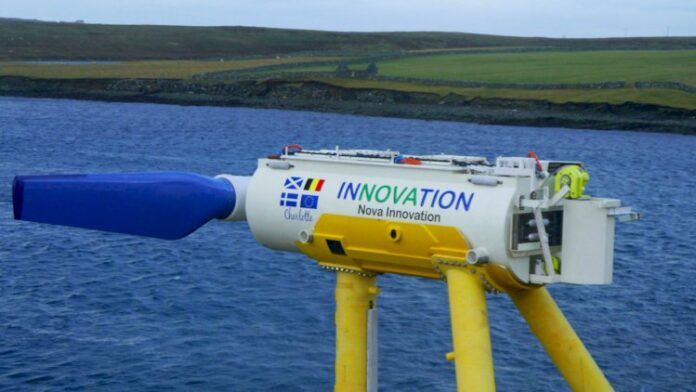The European marine energy project, Enabling Future Arrays in Tidal (EnFAIT), has reduced the cost of tidal power by 15% and grown its supply chain from four to 14 EU countries.
By 2022, when the project closes, the project consortium forecasts a cost reduction exceeding 40%, potentially attracting interest in tidal power from global investors.
The €20m EnFAIT, which began 18 months ago, uses Nova Innovations’ tidal array technology installed off the coast of Scotland’s Shetland Isles.
The project is an academic-industry collaboration between nine European partners, demonstrating the economic viability of tidal power and paving the way for a new industrial marine manufacturing sector.
Nova is leading the consortium. Chief executive Simon Forrest said: “Even at this early stage of the project, we have achieved significant cost reduction successes, and EnFAIT is already helping to map out the world’s most extensive tidal power supply chain across Europe."
"The cost reduction pathway is becoming “increasingly clear,” he added.
Nova says further cost reductions will be driven by improvements in the design of its underwater turbines, learnings from the optimal arrangement of the turbines, and improved measurement and forecasting of tidal flows at prospective sites.
Advances in forecasting, led by engineers from the Offshore Renewable Energy (ORE) Catapult, have contributed to the faster than expected cost reductions so far.
The array itself is now supplied with 100% EU-manufactured content, bringing the number of EU supplier countries, throughout the continent, up to 14.
The array is already powering homes and businesses across Shetland.
There are more than 60 Scottish companies in the project supply chain.
Forrest said: “As the project progresses, we are discovering new insights into the way tidal turbines interact with each other, and we are also gaining knowledge of the elegant interplay between the turbines and the tidal flows around them."
This new knowledge is allowing us to maximise yield and creates the foundation for ‘eureka’ design moments that will facilitate further falling costs.
Other consortium members include Belgian renewables developer ELSA, Mojo Maritime in the UK, RSK Environnement in France and the University of Edinburgh.
Source:renews



